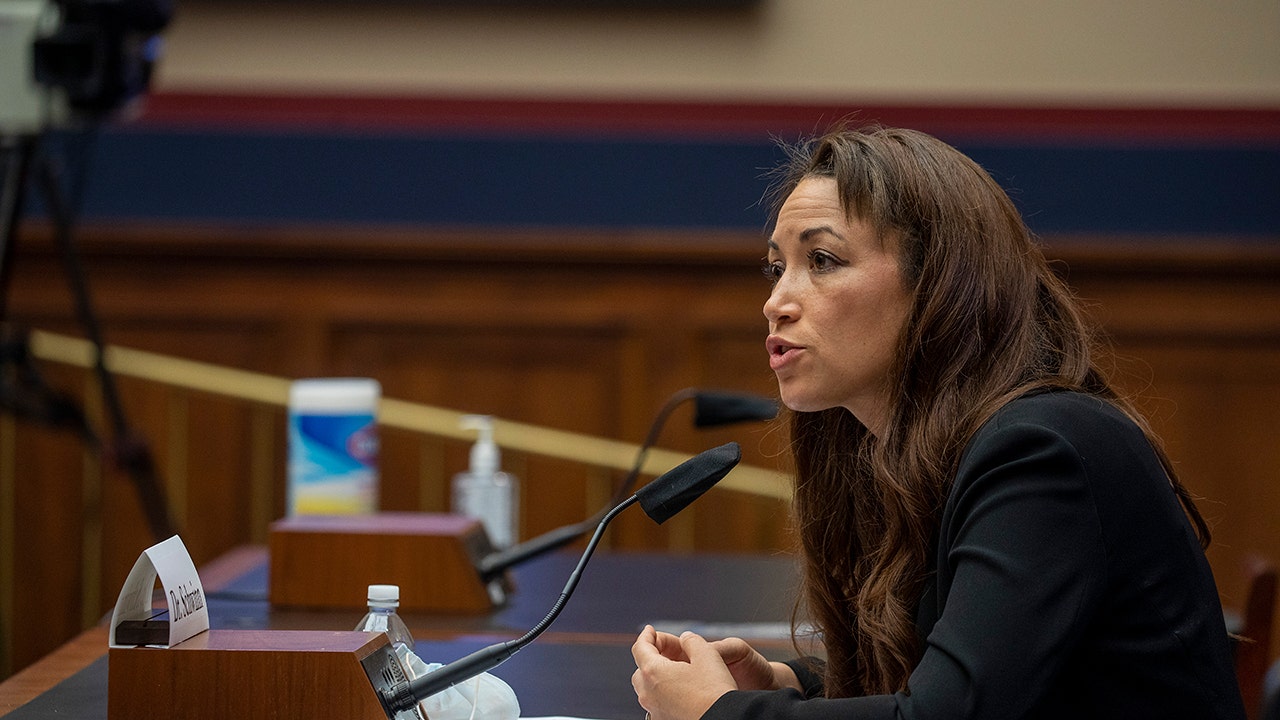On Wednesday evening, I opened up the New York Times homepage—something I do with fevered regularity these days as Gaza coverage slips further and further down the pecking order—and began to scroll. I scrolled past stories about the ghoulish pageantry of the Republican National Convention, about JD Vance’s Machiavellian ascent, about the timeline and fallout of the Trump shooting. Summer cooking recipes. Racism in Argentinian football. A tribute to the late, great Shannon Doherty. And, of course, half a dozen articles and op-eds about Joe Biden’s age and intransigence and the accompanying frustrations of his party’s power brokers. I stood there, staring at my phone, thumbing up and down the homepage of America’s newspaper of record, searching for a single mention of Gaza, and found nothing.
I should stress: this lack of coverage did not come at the tail end of an unusually quiet week in the besieged enclave. In just the previous 24 hours, at least 81 Palestinians had been killed by Israeli airstrikes, America’s grotesque floating aid pier was officially shut down, the AP reported that the U.S. and Israel have allowed tax-deductible donations to far-right groups that have blocked that aid from being delivered to Gaza, and the BBC told the story of a young Gazan man with Down’s syndrome who had been torn open by an Israeli combat dog and then left to die. None of this, seemingly, merited coverage.
What did receive coverage—thousands and thousands of words of coverage—was if, and how, Biden might hold up on the campaign trail against the vim and vigor of a syphilitic 78-year-old cheeseburger enthusiast with a bullet hole in his ear. If you were to open the opinion section of a major American newspaper this past week, you could be forgiven for thinking that age, and some understandable-but-lamentable stubbornness, are the sole reasons for Biden’s historic unpopularity among his base. You certainly would not know that Joe has spent the bulk of the last year sponsoring a genocide, nor that his decision to do so has made the prospect of voting for him, let alone actively campaigning for his reelection, a nauseating prospect for many Democratic voters.
I’m not naive. I know that the American people care far more about Biden’s age and debate performance than they do about his Middle East policy. I know that, if Biden is convinced to step aside, it will be because of his inability to string two sentences together in public, and not because of his nearly ten months of unconditional support for Israel’s live-streamed annihilation of Gaza. In a more moral world, the utter disregard for Palestinian life that this president has displayed since October 7 would make the idea of him seeking a second term in office laughable. The debate among pundits and voters would not be whether he has the constitution to steward the country for another four years, but whether a sitting American president should be remanded to The Hague before or after he is impeached.
We live in a world where Palestinian lives are so cheap that American journalists will watch a limbless child die screaming on the filthy floor of a bombed-out hospital, and then talk about Joe Biden’s impressive foreign policy record.
Unfortunately, we don’t live in that world. We live in a world where Palestinian lives are so cheap that American journalists will watch a limbless child die screaming on the filthy floor of a bombed-out hospital, and then talk about Joe Biden’s impressive foreign policy record and admirable moral fiber. Where Israeli leaders can make weekly statements so cartoonishly genocidal that White House press briefings become exercises in semantic gymnastics and feigned ignorance. Where horrors that should stop the world occur with such nightmarish frequency that cataloging, never mind thorough reportage, becomes impossible.
The American people clearly don’t care about Gaza to the degree that they should (Assal Rad, writing in Zeteo yesterday, provided an illustration as to why that may be the case)—especially given it’s their tax dollars paying for the bunker buster bombs and F-16 jets, their politicians providing unwavering diplomatic cover for Israel—but they still do care, and certain electorally-important demographics care a great deal. That much has been clear for months, and that’s why I find the recent trend among op-ed writers of omitting any mention of Gaza in their assessment of Biden’s reelection prospects so infuriating. Does the toxicity of Biden’s Zionism as it has manifested itself in foreign policy these past months, and the deep unpopularity of that stance among a majority of Democratic voters, not merit even a passing mention?
Take this op-ed, from Nicholas Kristof in the New York Times, which makes no reference to Gaza. Or this one in the UK’s Observer. Or this one, from the New York Times Editorial Board. Or this one, from Jeffrey Sonnenfeld, Stephen Henriques, and Steven Tian at Newsweek. Or this one, from Mike Murphy, again in the New York Times. Or this one, from Rebecca Solnit right here at Lit Hub, in which the author cautions against jettisoning Biden from the Democratic ticket and argues that it’s the pundits, and not the people, who have abandoned the sitting president:
It is an editorial choice to center the stories about Biden almost entirely on the (agreed: abysmal) 90-minute debate rather than the record of an exceptionally effective administration with solid accomplishments from foreign policy to the economy to climate and the environment.
Strength or weakness are not attributes isolated in the candidate, and success or failure do not depend on the candidate alone. The voters do actually decide, and how they decide is shaped by the stories. The campaign plays a role in them; the media play a far larger role. For two weeks we have been buried in an avalanche of stories portraying the president as incompetent, as a lever to get him out, but if the get-him-out part doesn’t succeed—and it doesn’t look like it will—you’re left with the portraying him as incompetent part.
I’m focusing on Rebecca Solnit’s piece in part because we published it, and in part because she is one of the few voices advocating for Biden to remain as the nominee (“if you think your car is not running great, taking a sledgehammer to it is neither what mechanics recommend nor what gets you the car you want”), but primarily because I have tremendous respect for her writing and activism, and the omission of Gaza from her argument left me at a bit of a loss.
In purely journalistic terms, to write a essay about whether or not Joe Biden should step down in which you don’t make reference to his disastrous Gaza policy, and the (potentially election-tipping) impact that policy has had on Arab-American and young Democratic voters across the country, is to obscure reality.
Joe Biden’s support among Arab American voters in critical swing states has plummeted since October, hovering somewhere south of 20 percent (Biden won nearly 60 percent of the Arab American vote in 2020). In May, the Arab American Institute calculated that Biden could see a potential loss of 177,000 Arab American votes in the four swing states where the poll was conducted, compared with the 2020 election. That includes a drop of 91,000 Arab American votes in Michigan, where Biden won the last election by just over 154,000 votes.
His support in the 18-34 demographic, while not quite as low, has similarly nosedived (in late April, 81 percent of young voters polled disapproved of his Gaza policy, and 68 percent deemed his presidency a failure) and the administration’s desperate attempts to reverse that trajectory have not moved the needle. Tens of thousands of young Americans have flooded the streets in protest every single week for nine months straight with one, very reasonable, request: Permanent Ceasefire Now.
Joe Biden will be ousted, either by his own party in coming days or by the voters in November. He will be abandoned by people who finally gave him what he’d wanted so desperately for almost half a century.
That Biden has refused to place even the most modest of conditions upon military aid to a country whose army has been carrying out some of the worst atrocities in living memory, even though doing so would have saved the lives of countless Palestinian civilians without significantly damaging the diplomatic relationship between the US and Israel, is seen by many young progressive voters as unforgivable. I’m one of them. I’ll vote for Harris. I’ll vote for Whitmer. I’ll vote for Michelle Obama. I’ll vote for Gavin “French Laundry” Newsom. I’ll vote for a department store mannequin in a Hubert Humphrey t-shirt if it means keeping Trump out of the White House. But I will not vote for Joe Biden, and (for what little anecdotal evidence is ever worth) I’ve spoken to many people who feel the same way.
The loudest calls for Biden’s removal are not coming from a small cabal of embittered, middle-aged, Beltway pundits—the “powerful, high-status white men” of which Solnit speaks. They’re coming, and have for months been coming, from a diverse caucus of Americans who have watched in horror as the man they were told (over and over and over again) stands for “decency” used their tax dollars to turn the Gaza Strip into a killing field. A man who flew to Israel to physically embrace one of the most remorseless butchers of the modern age. A man whose zealotry and vanity is driving the country back into the arms of a fascist grotesque.
Joe Biden will be ousted, either by his own party in coming days or by the voters in November. He will be abandoned by people who finally gave him what he’d wanted so desperately for almost half a century.
When that happens, we shouldn’t eulogize his presidency. We should speak aloud all of the reasons why it had to end.

























































